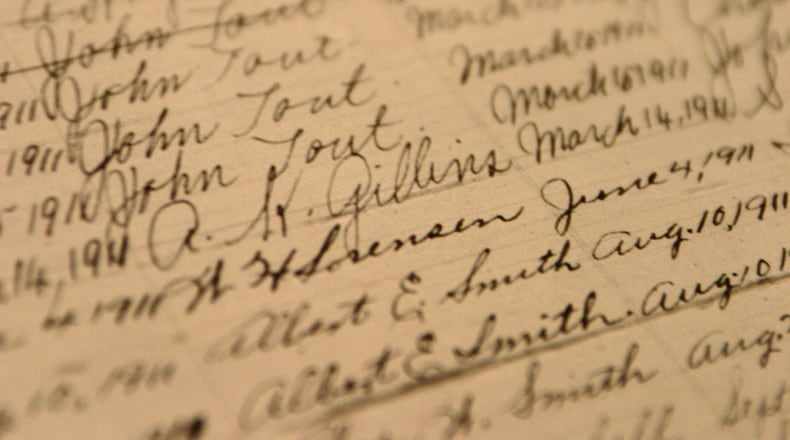They may have been neighbors, members of the same church, or cousins, as my grandfather’s parents were. Every married couple has a tale about how they ended up together, and Valentine’s Day is a great time to dig into your ancestors’ stories.
My paternal grandparents met in the church choir, or at least that’s how Grandfather Thomas got closer to grandma. Sometimes, it can be hard to figure out how your ancestors met if they did not live nearby and had no obvious connection.
During my research, I’ve come across two Confederate veterans’ pensions that indicated when future spouses met due to the war. In one case, the brother of a woman from the Columbus, Georgia, area straggled home from war to the family farm in 1865 and had in tow a man from Tennessee he met on the way. Reading between the lines of her statement, she clearly welcomed meeting a man who was not a cousin or neighbor. She married him and moved to his hometown of Murfreesboro, Tennessee and lived happily ever after. Traveling salesmen were another source of new blood.
If you don’t know how your ancestors met, either long ago, or in the 20th century, try to find out and document those stories in your files. It will be well worth it for future generations.
Putting your genealogy skills to work
A recent online article by Sunny Jane Morton, at familytreemagazine.com, outlines “6 Genealogy Jobs That Turn Your Family History Skills into a Career.” The jobs identified by Morton were private detective, investigative genetic genealogist, historic preservationist, military repatriation of remains expert, heir searcher and citizenship reclamation specialist.
In my career, I was in historic preservation for more than 30 years because of my genealogy research skills, especially using the Georgia Archives. So if you are looking to explore, think about these other options.
Speaking engagement tracking at Trello
In the November/December 2020 issue of Your Genealogy Today, Lisa Alzo points out that trello.com is an interesting site to explore. Trello is a visual collaboration tool that allows you to organize and prioritize projects. Check it out.
Contact Kenneth H. Thomas Jr., P.O. Box 901, Decatur, GAa., 30031 or kenthomasongenealogy.com.
About the Author
Keep Reading
The Latest
Featured


